Date: 2024-01-29
Attended by President Ing-wen Tsai, Academia Sinica launched Taiwan's first self-developed 5-qubit superconducting full-stack quantum computer at its quantum computer progress presentation today. During the event, AS President James Liao presented the research team’s self-developed 4-inch quantum wafer to President Tsai. The event was also attended by Chia-Lung Lin, Secretary-General to the President; Tsung-Tsong Wu, Chairman of the National Science and Technology Council and Chuan-Neng Lin, Vice Minister of Economic Affairs. It marks an important milestone in the development of Taiwan's quantum technology.
Vertical Integration: From Fundamental Research to Practical Applications
President Liao remarked that Academia Sinica has accumulated substantial research and development capabilities in quantum technology over the years, including chip design, fabrication, and quantum bit state control and reading technology. Following the development of Taiwan's first 5-qubit quantum chip last year, the recent success of a self-developed 5-qubit superconducting quantum computer is significant. Now available on the cloud for project collaborators to test and use, the achievement offers an inspirational moment for quantum technology research in Taiwan. In the future, Academia Sinica will continue to invest in the Quantum Technology research center at the Academia Sinica South Campus, vertically integrating key issues from fundamental research to practical applications.
Acknowledgment from President Tsai
President Tsai commended Academia Sinica for reaching a crucial milestone in leading quantum research and development. She acknowledged that, since the beginning of this century, quantum technology research has become a global trend, with advanced nations vigorously investing substantial resources in its development. Academia Sinica’s achievement, developing a 5-qubit quantum chip and quantum computer independently in just over two years, is exemplary. President Tsai also expressed her expectation that the Academia Sinica quantum team will lead Taiwan’s research and pave the way for Taiwan's leadership in critical quantum technologies.
Mastering Core Technologies to Facilitate the Domestic Quantum Computing Ecosystem
Explaining the development process, Dr. Chii Dong Chen, Distinguished Research Fellow at Academia Sinica’s Institute of Physics and Research Center for Applied Sciences, highlighted the effort required to establish the optimal platform for a domestic quantum computing ecosystem. The control system for quantum bits is a high-speed digital device that can be provided to information technology companies for testing and development. Connected to high-performance computers, quantum computers can enhance overall computational efficiency.
Furthermore, installation of the entire low-temperature system, including high-density coaxial cables, high-density RF connectors, and EM shield packaging boxes for quantum chips, requires advanced technological support from precision electronics industries. Thus, experience in testing and developing quantum technology are important, Dr. Chung-Ting Ke, Assistant Research Fellow of the Institute of Physics at Academia Sinica, emphasized that as they establish a platform that will facilitate subsequent research and development in relevant technologies and large-scale quantum computers. By mastering the core technologies and continuously nurturing talent, Taiwan's quantum ecosystem will flourish.
Building a National Quantum Technology Research Base at the South Campus
According to President Liao, as the key component of quantum computers, superconducting quantum chips’ unique fabrication conditions and requirements mean that they cannot be directly produced with current semiconductor production processes. The Academia Sinica South Campus will therefore be devoted to developing quantum chip and quantum computer system manufacturing technology to create a national-level Quantum Technology research center. From fundamental research to development to practical applications, the research center aims for "team-based" vertical integration as well as collaboration with government, industry, and academia to further Taiwan's advantage in quantum development.
In 2022, Academia Sinica established the “Quantum Taiwan Team,” jointly with the National Science and Technology Council and the Ministry of Economic Affairs. The Quantum Taiwan Team focuses on universal quantum computer hardware technology, quantum optical technology, quantum software technology, and application development. Among the dignitaries attending the progress presentation were Xavier Chang, Deputy Secretary-General to the President; Minn-Tsong Lin, Deputy Minister of the National Science and Technology Council; Yi-Juang Chern, Deputy Minister of the National Science and Technology Council; Edwin Liu, Director of the Industrial Technology Research Institute; Professor Chang-Hong Shen, Deputy Director-General of the Taiwan Semiconductor Research Institute, NARLabs and Professor Shangjr Gwo, Convener of the Quantum System Promotion Working Group.
-
Dr. Chung-Ting Ke, Institute of Physics, Academia Sinica
(02) 2789-6748,ctke@gate.sinica.edu.tw
-
Ms. Wen Li Wang, Media & Public Affairs,Secretariat, Central Administrative Office, Academia Sinica
(02)2789-9727,cassiew@as.edu.tw
-
Ms. Steffi Tung Lin, Media & Public Affairs, Secretariat, Academia Sinica
(02) 2789-8820,tunglin@as.edu.tw
-
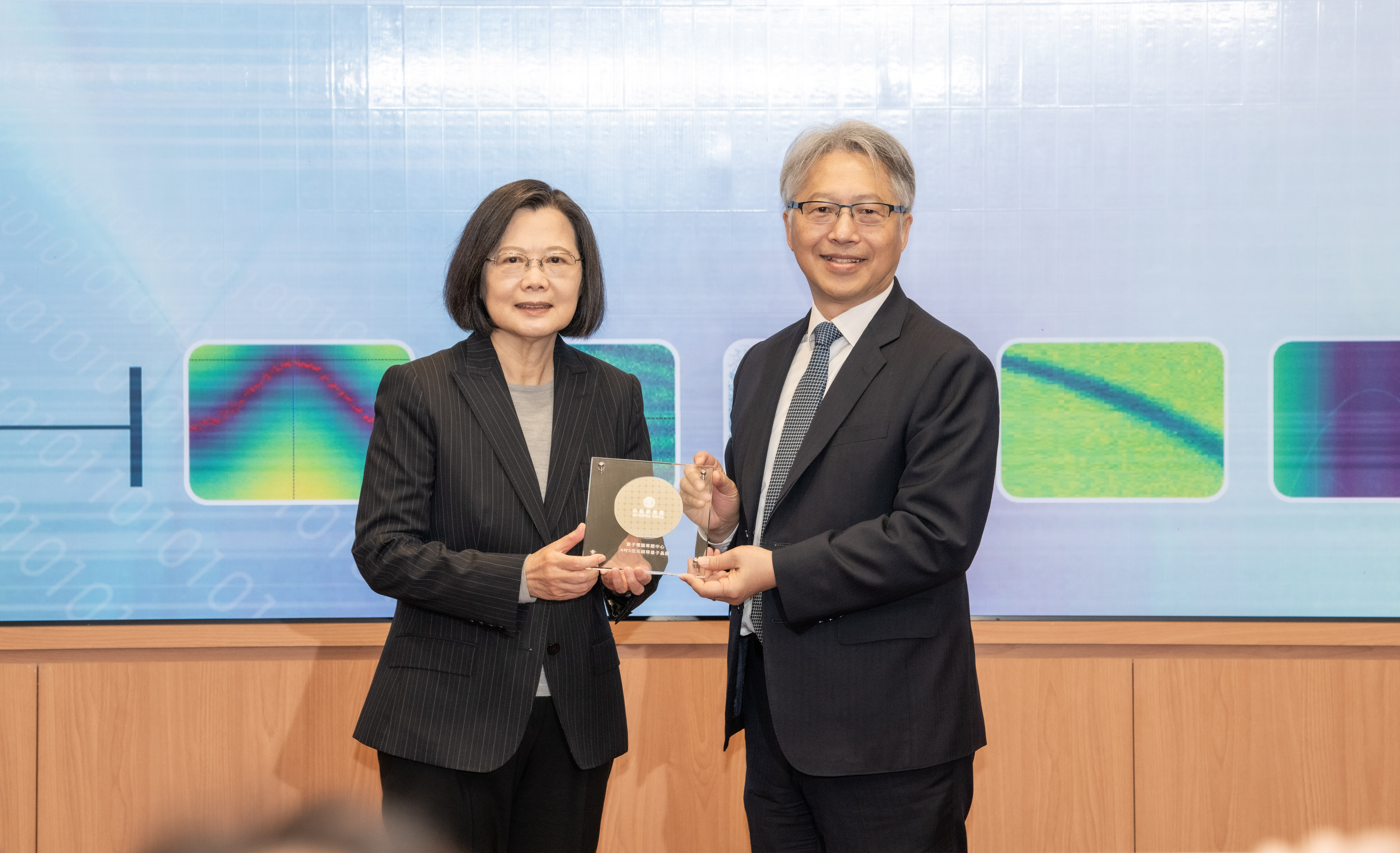 AS President James Liao presented the research team’s self-developed quantum wafer to President Tsai. Photo credit: Academia Sinica.
AS President James Liao presented the research team’s self-developed quantum wafer to President Tsai. Photo credit: Academia Sinica.
-
 AS President James Liao. Photo credit: Academia Sinica.
AS President James Liao. Photo credit: Academia Sinica.
-
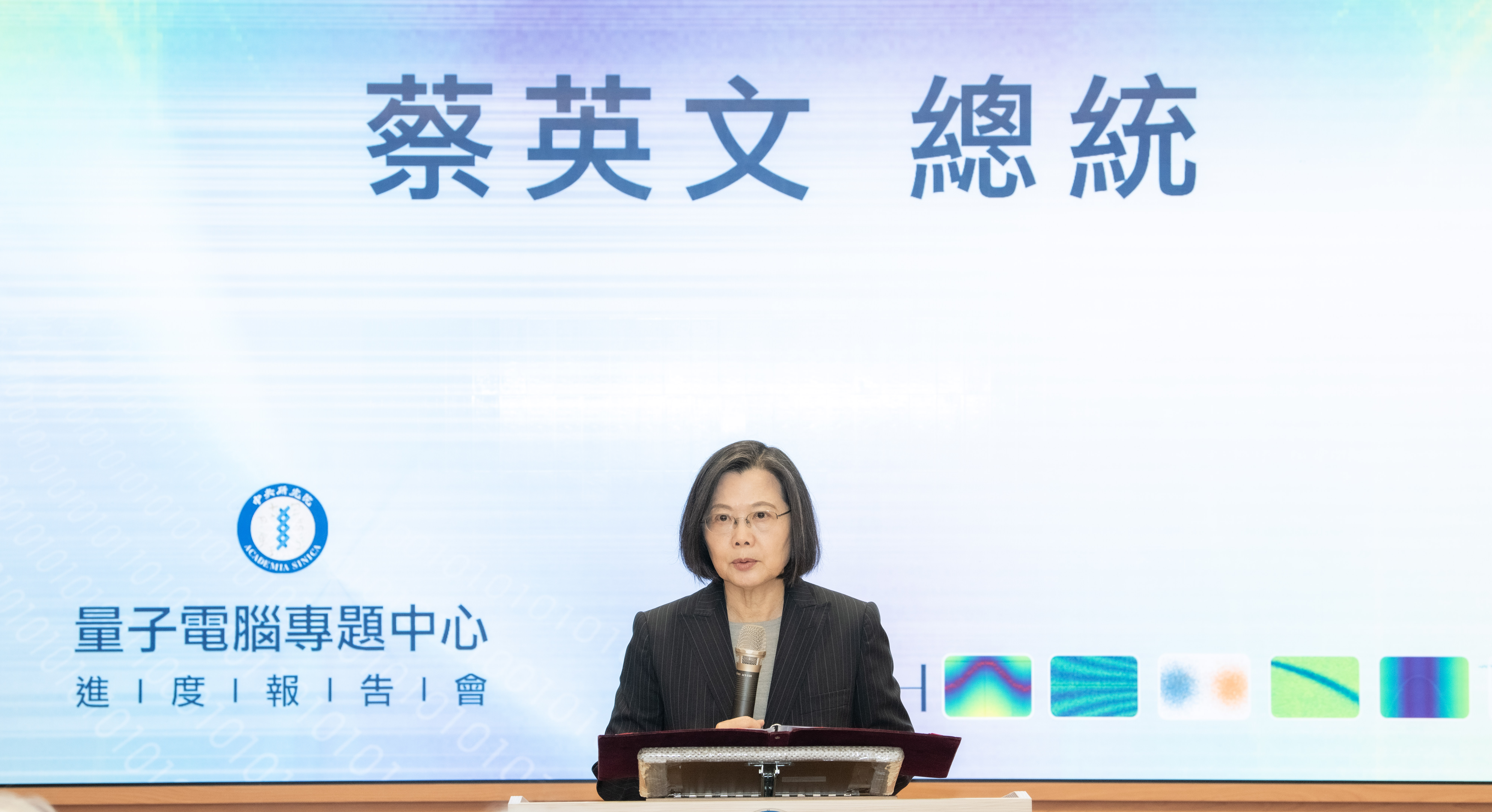 President Ing-wen Tsai. Photo credit: Academia Sinica.
President Ing-wen Tsai. Photo credit: Academia Sinica.
-
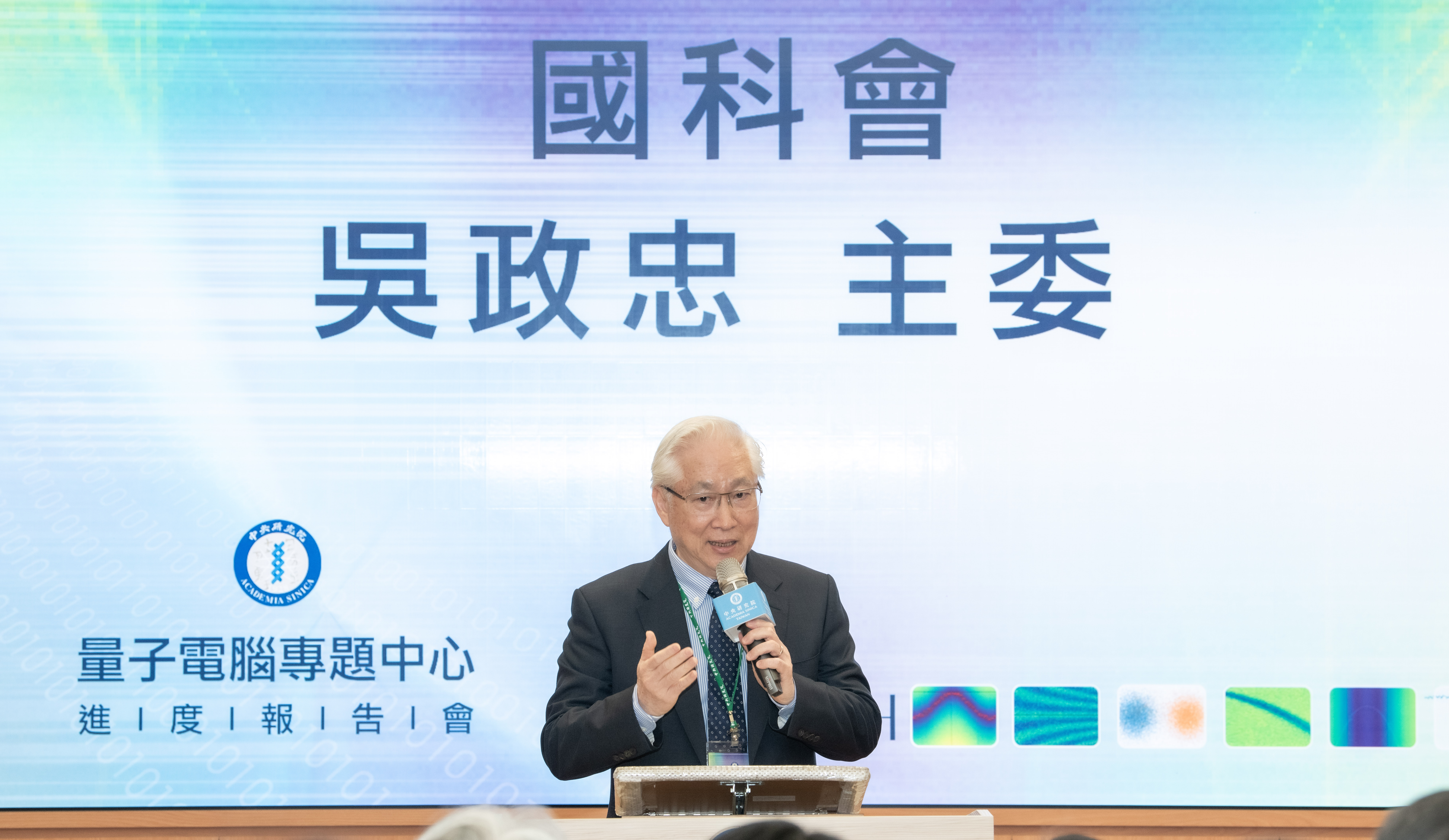 Chairman of the National Science and Technology Council Tsung-Tsong Wu. Photo credit: Academia Sinica.
Chairman of the National Science and Technology Council Tsung-Tsong Wu. Photo credit: Academia Sinica.
-
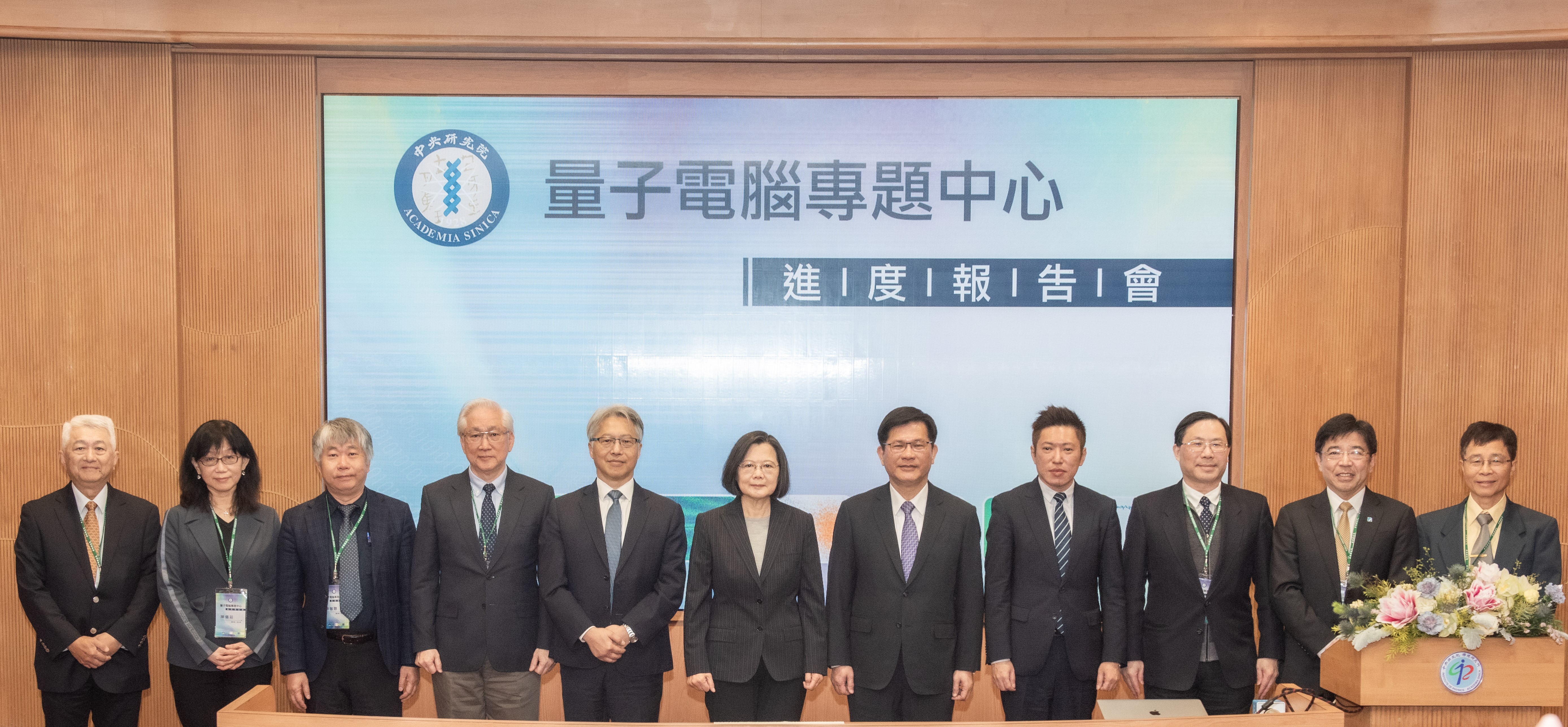 The dignitaries attending the quantum computer progress presentation. Photo credit: Academia Sinica.
The dignitaries attending the quantum computer progress presentation. Photo credit: Academia Sinica.
-
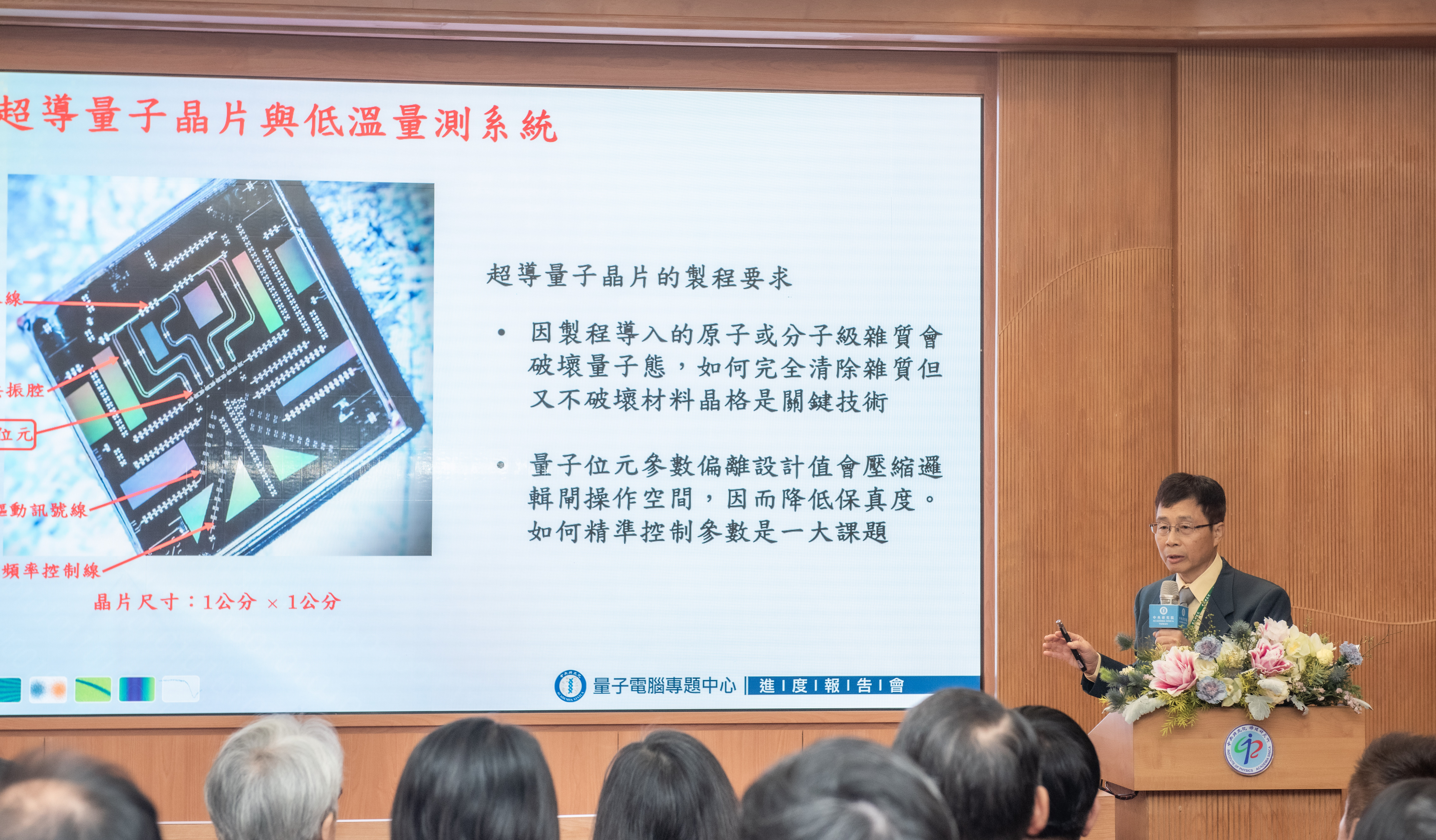 Dr. Chii Dong Chen, Distinguished Research Fellow at Academia Sinica’s Institute of Physics and Research Center for Applied Sciences. Photo credit: Academia Sinica.
Dr. Chii Dong Chen, Distinguished Research Fellow at Academia Sinica’s Institute of Physics and Research Center for Applied Sciences. Photo credit: Academia Sinica.
-
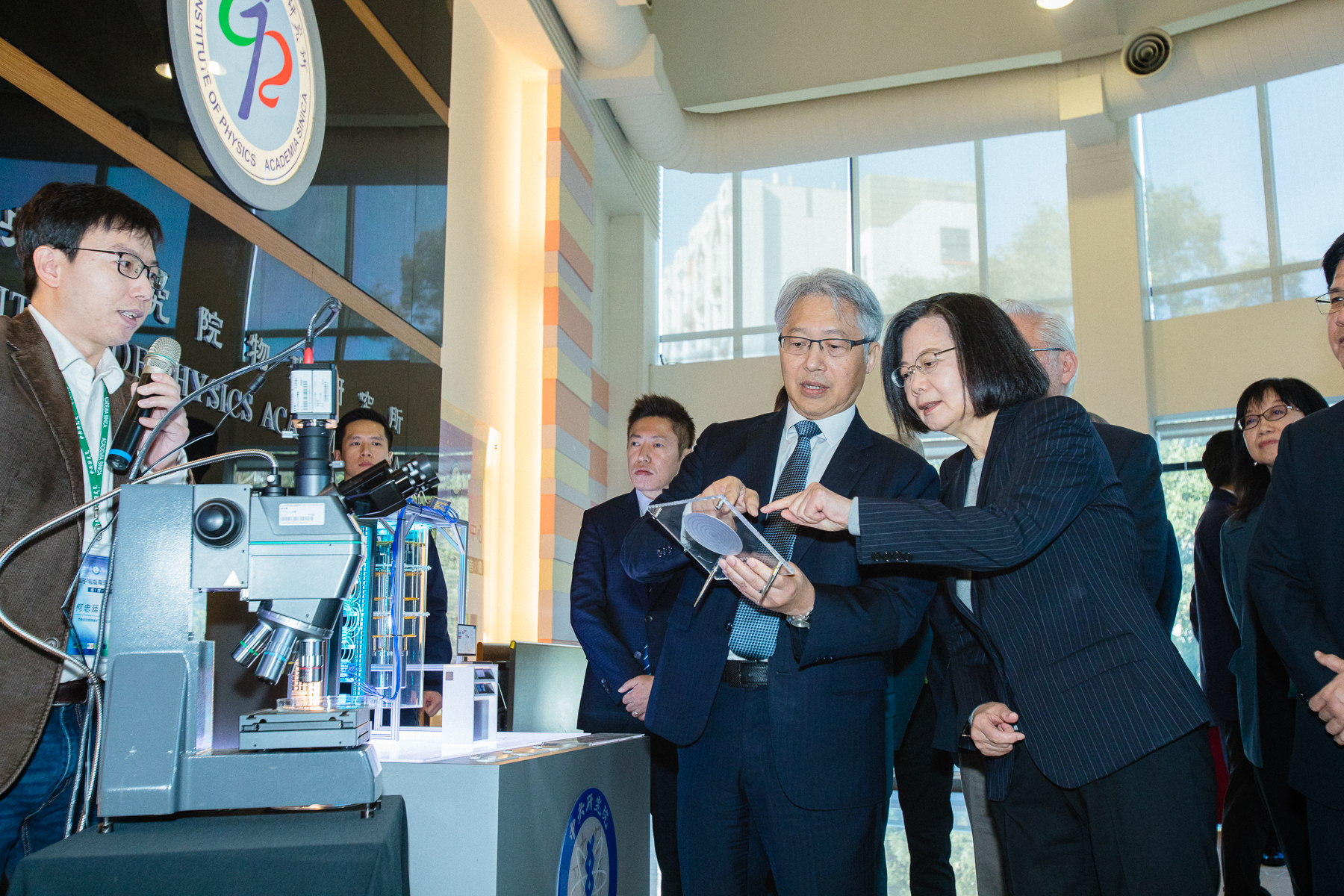 President Tsai Inspects Academia Sinica's Self-Developed 5-Qubit Superconducting Quantum Computer Model. Photo credit: Academia Sinica.
President Tsai Inspects Academia Sinica's Self-Developed 5-Qubit Superconducting Quantum Computer Model. Photo credit: Academia Sinica.
-
 AS President James Liao presented the research team’s self-developed quantum wafer to President Tsai. Photo credit: Academia Sinica.
AS President James Liao presented the research team’s self-developed quantum wafer to President Tsai. Photo credit: Academia Sinica.
-
 Academia Sinica's Self-Developed 5-Qubit Superconducting Quantum Computer Model. Photo credit: Academia Sinica.
Academia Sinica's Self-Developed 5-Qubit Superconducting Quantum Computer Model. Photo credit: Academia Sinica.
-
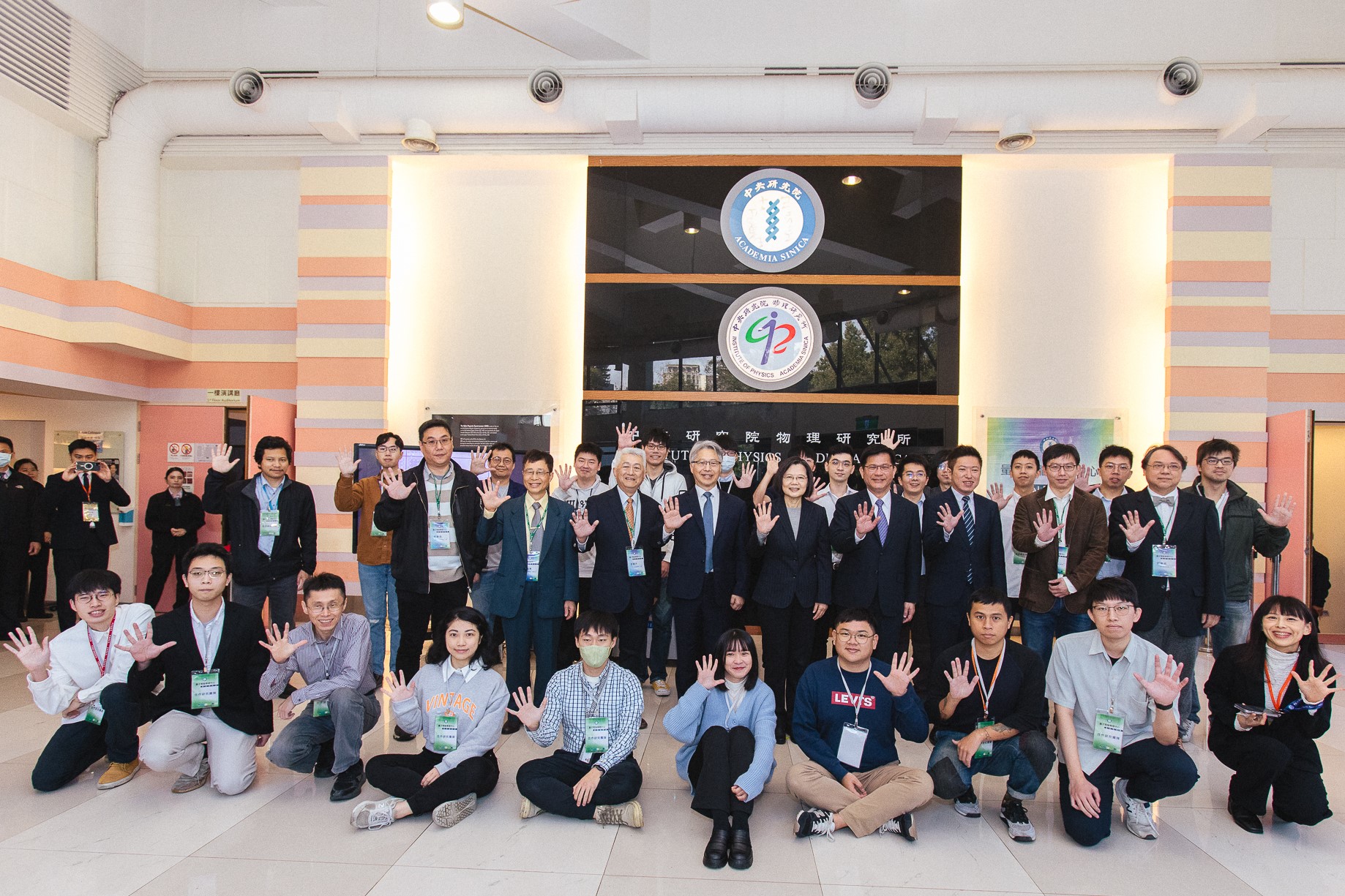 Taiwan’s Quantum Technology Milestone President Tsai Inspects Academia Sinica's Self-Developed 5-Qubit Superconducting Quantum Computer. Photo credit: Academia Sinica.
Taiwan’s Quantum Technology Milestone President Tsai Inspects Academia Sinica's Self-Developed 5-Qubit Superconducting Quantum Computer. Photo credit: Academia Sinica.









 Home
Home
